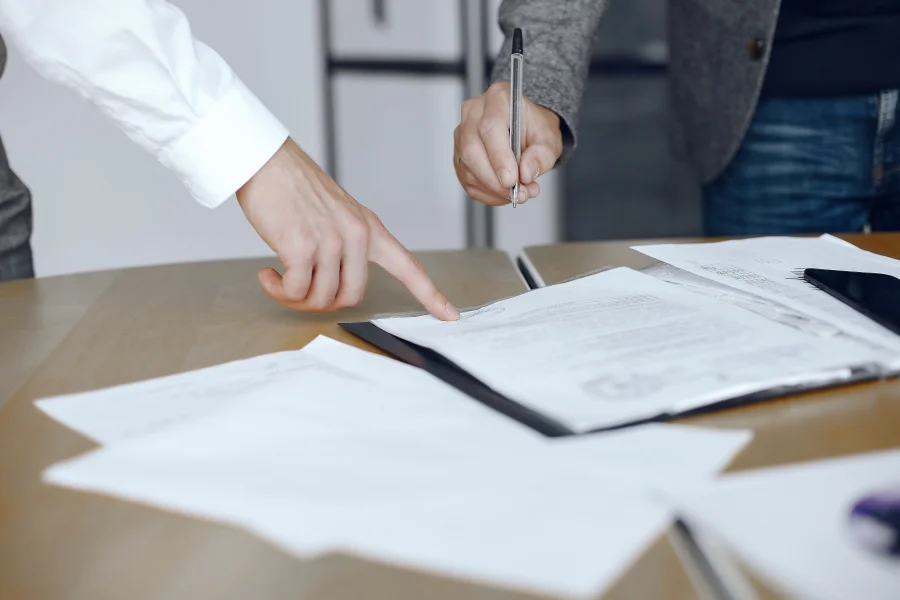
What you need to look for when buying a company in the Czech Republic

Thorough due diligence before purchasing a company is an important step to help identify risks. This analysis, called due diligence, focuses on financial, legal, and tax aspects. This enhances the buyer’s comprehension of the company’s assets, debts, business partners, and other aspects.
If you need assistance with analysis, please get in touch with our company. We provide full business support in the Czech Republic.
Due diligence in company acquisitions: a balancing act
The due diligence process in a company acquisition often involves a delicate dance between the buyer and the seller. The buyer, who is investing significant capital, seeks to acquire a company that operates smoothly and profitably. Conversely, the seller, whether intentionally or not, might withhold information to achieve the highest possible selling price.
Effective due diligence serves as a safeguard, uncovering potential risks that could lead to costly mistakes. Without thorough investigation, these risks may remain hidden, potentially resulting in poor decision-making by the buyer. In some cases, the issues discovered during due diligence can be so severe that they necessitate the termination of the deal. Therefore, a meticulous approach to due diligence, encompassing various aspects of the business, is essential to mitigate risks and arrive at the most accurate and comprehensive valuation.
Tax due diligence specifically examines the risks associated with the target company’s tax liabilities, such as income tax, VAT, and other relevant taxes. The objective is to gain a clear understanding of these obligations, which can inform the purchase price negotiation and lead to strategies that minimize risk (e.g., discounts or guarantees). In this article, we will delve into the most frequent errors made during tax and accounting due diligence.
Assets from a tax perspective
Fixed assets, such as real estate, are typically a business’s assets. When purchasing and contributing non-cash funds, the property’s value and accounting procedures are critical. To determine the correct value in the case of a non-monetary contribution, we rely on the opinion of an expert, whereas in the case of a purchase, it is necessary to study the purchase price and all associated costs.
When purchasing property through a contribution, it is important to correctly price it for tax purposes and depreciation requirements. From a tax perspective, it’s crucial to consider the possibility of deferring depreciation in unfavorable years. We should pay particular attention to assessing technical cost increases and distinguishing between repairs and cost increases.
Situations persist where the real estate value distribution between the building and the corresponding land plot is incorrect. This may result in an incorrect determination of the amount of depreciation, as well as an increased risk of audit by the tax inspectorate.
Corporate income tax
This is mostly about tax obligations and the accuracy of returns prepared and filed. Corporate income tax is directly dependent on accounting and financial performance, so a corporate audit must include a review of past reporting periods (typically three years but no more than eight years). As previously said, for enterprises that hold real estate, many buyers are primarily concerned with the amount of depreciation and other deductible expenses, as well as the integrity and transparency of accounting records.
If the company has already undertaken acquisitions (such as buying another company or merging), the situation becomes more difficult. The buyer must manage not just the liabilities of the company he wishes to acquire, but also those already transferred to it.
Value-added tax
It is necessary to check the value-added tax as part of due diligence. The main focus of VAT audits is on the accuracy of deduction claims, particularly in the case of property rentals and cross-border transactions. Especially when renting out real estate under different tax regimes, it’s crucial to verify the accuracy of the declared VAT deduction amount. Over the last ten years, we have carried out such verification. Unconfirmed VAT exemptions (for example, when supplying goods to other EU countries) may result in additional tax charges.
Conclusion
Conducting thorough tax and accounting due diligence is a key step in minimizing risks and achieving an objective business assessment. Effective collaboration between legal and tax experts is essential to successfully executing a transaction and minimizing potential problems for both parties.
Contact us to discuss this issue.
How to get started with 360 WEDO?
Send us the form and our specialist will contact you shortly




